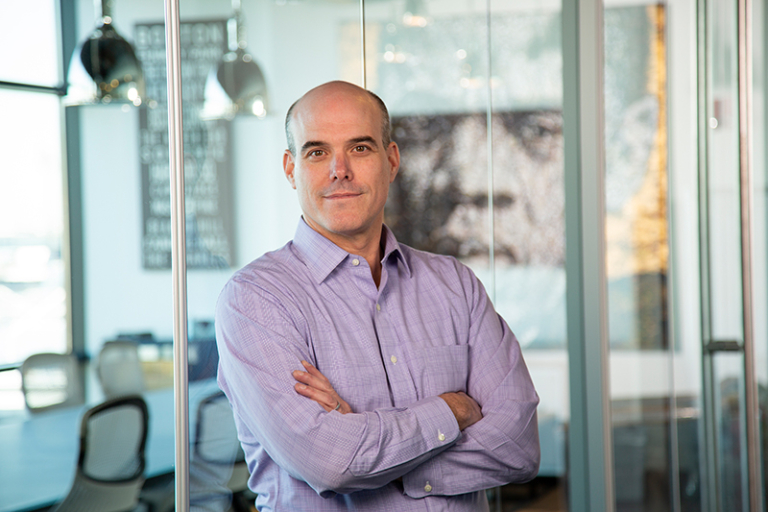It’s a new year—the time of year where resolutions and fresh starts abound. It’s also the perfect time to predict what’s on the horizon in healthcare. According to LRV Health’s Keith Figlioli, there’s plenty to consider, especially when it comes to disruption in the digital realm.
For several years, billions of dollars have flooded into the market, sparking innovation and the potential for future implementation in healthcare. The momentum has been incredibly swift, however, 2019 may be the year the market finally slows to catch its breath and focuses on more granular efforts.
As a senior executive at LRVHealth, Figlioli said his position at the venture platform, which provides early-stage capital to healthcare companies, provides him with a broader perspective of the market and where it’s headed. Figlioli shared his predictions with HIT Consultant on the major developments he expects to impact digital healthcare in 2019.
Here’s a snapshot of what we can expect:
- Valuations Will Peak Across Digital Health
Last year turned out to be a monumental year for healthcare innovation, with big players like Google, Apple and Amazon intensifying their presence in the digital realm. Additionally, investments in healthcare in 2018 well surpassed the previous year’s total, topping $6.8 billion dollars by the end of its third quarter. Yet as the saying goes what comes up must go down and while digital health innovation has been flying high, the impending slowdown is just one of the many possibilities we might see in 2019. “Valuations will peak for digital health startups in 2019,” said Figlioli. “The impending economic slowdown will cause investors across industries to pull back and the newer entrants to digital health investing will return to industries where they’re more comfortable. But this will leave a favorable environment for proven investors in the healthcare industry.” According to Figlioli, two major factors will drive this – a looming economic slowdown that will cause investors to pull back, and newer entrants in digital health investments retreating to the industries they know best, causing capital to be less abundant. However, it’s important to note that this will leave a very favorable investing market for proven, steadfast industry investors. - Emerging Entrants Show Their Cards
Figlioli says that over the past few years we’ve seen a number of new entrants in the market, ranging from tech powerhouses to big retail players, but they’ve all kept their strategies pretty close to the vest. In 2019, expect that to change. “We’ll start to gain a much clearer picture on the specific strategies of emerging entrants such as Amazon, big tech, and the big retail players,” he said. “Partnership announcements between retail players and large healthcare systems and payers will be omnipresent throughout the year. Expect Aetna/CVS, Walmart, Walgreens, Rite Aid, Amazon, Target and others to be very active in creating the new access channels, from the retail setting to high acuity settings such as hospitals, and with leadership of the Amazon/Berkshire Hathaway/JP Morgan newco in place, we’ll see its first initiative unveiled.” - Value-based Care Picks up the Pace (Again)
Although value-based care (VBC) initiatives have been held since President Trump took office, we can expect that Health and Human Services will begin to launch new VBC initiatives; expect a handful of new mandatory and voluntary programs across cancer, cardiac, and net new bundled payment models, and a very measured and practical approach based on lessons-learned from VBC 1.0 during the Obama years. The market will react with a resurgence of tech and tech-enabled service offerings. “HHS will implement quite a few mandatory and voluntary new programs and net new bundled payment models that will spur new tech offerings. However, this time around, the innovators will take a very practical approach, putting lessons learned during VBC 1.0 during the Obama years to good use, said Figlioli. - EHRs Will Adopt the App Store Mentality
The dream of the EHR being the one-size-fits-all solution will finally meet its impending death as the adage of “my EHR will eventually build this functionality” will start to fade. This evolution will be a result of open APIs becoming the norm, said Figlioli. “Healthcare CIOs will become significantly more comfortable layering best-of-breed applications on top of their EHRs as open APIs become the norm. This will help decrease costs and force the core EHRs to reconsider their revenue growth strategies for the future,” he added. - Food as Medicine Becomes Mainstream
The trend of food as medicine will do more than just drive the growth of functional foods on a global scale. In healthcare, Figlioli said we can expect to see established community programs – such as local food banks and food stamps – become more affiliated with local healthcare providers and payers. As a result, surely the tech to enable such programs will follow. “Food-as-medicine will start to go mainstream this year and we’ll see local providers and payers partnering with established community programs like food banks and food stamps. This is the next step in the unbundling of social determinants, which started with innovations in transportation over the last couple years,” said Figlioli.
It will be interesting to see how many of Figlioli ’s predictions hold true as the year begins to pick up steam, and as a result, what innovations lead the way. Perhaps, if the market slows its growth it can narrow its focus on delivering its promises that spurred such growth in the first place.
